Accumu 最新号・Vol.26-27
モンゴルの雑誌“The Defacto Gazette”にキリル・コシック教授のインタビューが掲載
Prof. Cyryl Koshyk was a key presenter for a government-sponsored 2019 “XXI Century Education Paradigm Conference: AI in Education Sector.” He was approached for additional interviews after the conference. One of them was from Jargal Defacto and asked to appear on his live TV. Prof. Cyryl Koshyk accepted to be interviewed, and featured on national Mongolian TV and in “The Defacto Gazette”. He outlined the importance of AI in education, particularly AI platform development for education to be used in most Mongolian schools from 2021 as well as leading educational development initiatives at kcg.edu.
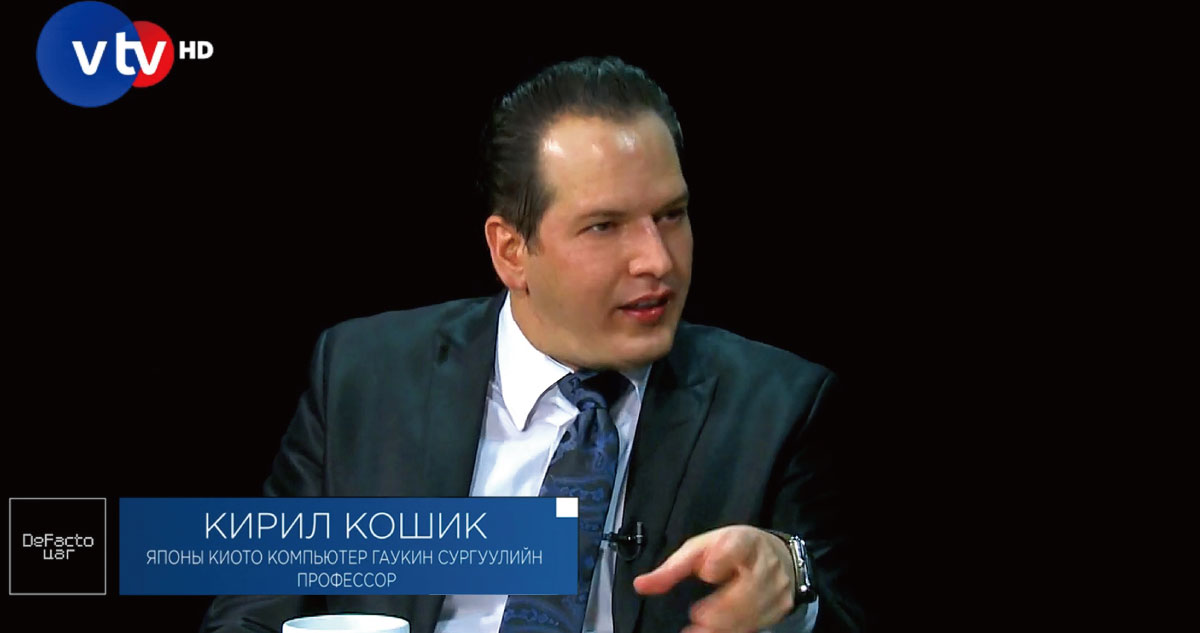
キリル・コシック教授は,モンゴル政府主催の 2019 年「21 世紀教育パラダイム会議:教育セクターにおける AI」の基調講演者に招かれた。その際,Jargal Defacto (Jargalsaikhan Dambadarjaa 氏がホストを務める時事評論番組)の生放送出演を含む取材依頼を受けた。コシック教授のインタビューは,モンゴル国営テレビの同番組と「The Defacto Gazette」誌でも取り上げられた。コシック教授は,教育における AI の重要性に触れ,殊に 2021 年からモンゴルの大多数の学校で利用が開始される予定であり,kcg.edu においても開発の試みがなされている教育用 AI プラットフォームの開発について熱く語った。

Cyryl Koshyk キリル·コシック
Producer/Director/Editor/Visual Effects Artist & Supervisor/Motion Graphics Designer/High-end Branding/2D 3D Motion & Graphic Designer/Visual & Digital Arts/Web Designer/Programmer/Analyst/Global Promotion/Product Consumer Placement/Marketing/Global Market Research & Analyst Multi-lingual, spoken Languages (Fluent): English, Polish, Bulgarian.
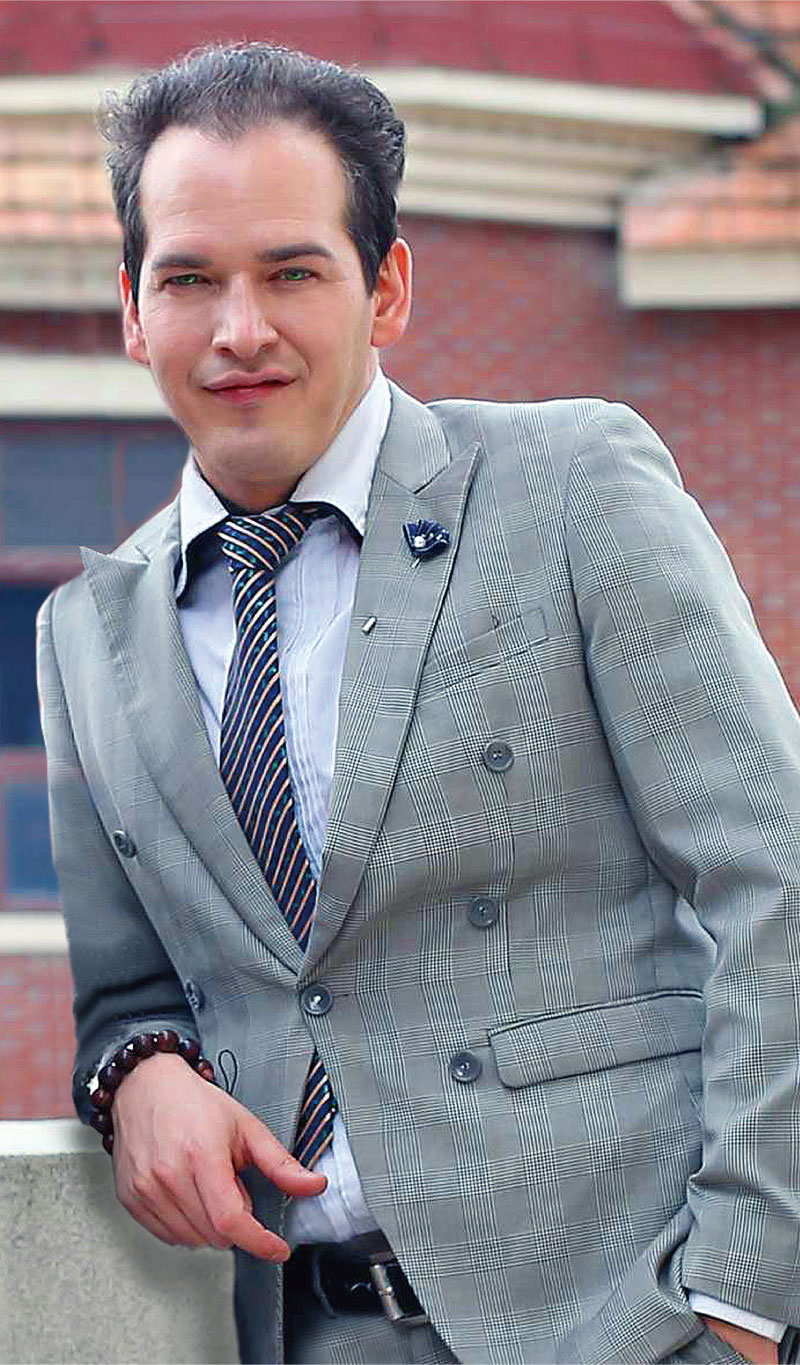
プロデューサー/ディレクター/編集者/ビジュアル効果アーティスト&スーパーバイザー/モーショングラフィックデザイナー/高級ブランド戦略/2D・3Dモーション&グラフィックデザイナー/ビジュアル&デジタルアーツ/ウェブデザイナー/プログラマ/アナリスト/グローバルプロモーション/プロダクトプレイスメント/マーケティング/グローバルマーケットリサーチ&アナリスト
多言語話者で,英語・ポーランド語・ブルガリア語に堪能
(ポーランド)クラクフ経済大学 応用情報学士
ダークホライゾンピクチャーズ創立者およびシネマットスタジオ創立者(ロサンゼルス)。ハリウッドの映画・TV産業において,ビジュアルエフェクツ・スーパーバイザーおよびプロデューサーとして複雑な特殊効果映像製作・編集に関わる。手がけた作品は「300(スリーハンドレッド)帝国の進撃」,「サイレントヒル:リベレーション3D」,「プロメテウス」など多数。

Cyryl Koshyk established following production and development companies:
- Dark Horizon Pictures (Motion Picture Productions, Years Active 2010-current) Position: Founder / CEO / Director / Producer
- Cinematte Studios (Post-Production Services, Years Active: 2010-current) Position: Founder / Post-production Supervisor
- Miltch Capital Management (Financial Markets Systems, Years Active: 2009-current) Position: Lead Developer & Researcher
- Cirux Render (Visual Effects / Post-production Service, Years Active: 2009-2011) Position: Founder / Leading Artist
- CineVFX (Visual Effects / Pre and Post-production Services, Years Active: 2009-2011) Position: Founder
- Silver Wave Studios (Years Active: 2005-2010) Position: Founder / CEO
- Red Wave Studios (High-end Web Design, Years Active: 2003-2010) Position: Founder / CEO / Manager
- Pro Trader (Financial Markets Trading, Years Active: 2000-2002) Position: Lead System Developer & Researcher & Tester
キリル・コシック氏が設立した制作・開発会社
- ダークホライゾンピクチャーズ(映画制作,2010年設立)役職:設立者,CEO,ディレクター,プロデューサー
- シネマットスタジオ(ポストプロダクション業務,2010年設立)役職:設立者,ポストプロダクションスーパーバイザー
- ミルヒキャピタルマネジメント(ファイナンシャルマーケットシステム,2009年設立)役職:主任開発者,リサーチャー
- シラックスレンダー(ビジュアル効果/ポストプロダクション業務,2009年から2011年まで活動)役職:設立者,主任アーティスト
- シネVFX(ビジュアル効果/プレ&ポストプロダクション業務,2009年から2011年まで活動)役職:設立者
- シルバーウェーブスタジオ(2005年から2010年まで活動)役職:設立者,CEO
- レッドウェーブスタジオ(高品質のウェブデザイン,2003年から2010年まで活動)役職:設立者,CEO,マネージャー
- プロトレーダー(ファイナンシャルマーケット取引業務,2000年から2002年まで活動)役職:主任システム開発者,リサーチャー,テスター
Interview インタビュー
- Jargal Defacto
- Good Afternoon! Please tell us about what brought you to Mongolia and how many times you have been here?
- Cyryl Koshyk
- The students from Mongolia that I met in Japan were very ambitious and open minded. This sparked my interest in Mongolia as those students told me more about Mongolia and that I should visit. I recently became very involved in promoting Artificial Intelligence (AI) in the education sector and the main purpose of my visit was to visit Universities and meet students.
- JD
- Can you elaborate on what you do at Kyoto Computer Gakuin (KCG) involving AI?
- CK
- KCG is one of the first private schools in Japan and I am very fortunate to work with them. AI is a very broad subject but my team is currently working on using AI in entertainment by controlling CGI (Computer-Generated Imagery) elements. It is similar to the movie Avatar by James Cameron where actors controlled CGI characters with the main difference being that the camera processes the motions of human beings through AI and controls the CGI characters.
- JD
- Can you give us some background into AI and what it will achieve in the future?
- CK
- AI has been present for a long time in many iterations and began in the 1950s where scientists used Perceptron to teach computers using examples. Although AI operates based on coding, it simulates the human brain. When I first heard of AI 15 years ago, I thought of movies such as the Terminator and Matrix, thinking that computers will take over and control humanity. In about half a century, I believe machines will develop a conscience. AI has made significant advancements in the medical field recently and I should mention that I am working with Etugen, a medical university to develop a prototype for detecting skin cancer by simply using a phone. A nurse can for example use a phone to examine the skin of a patient and determine whether it is cancerous.
- JD
- When did you develop this?
- CK
- A prototype has already been developed and we are currently testing and gathering samples. I was recently in Irkutsk, Russia to make a presentation and the Russian government expressed interest in equipping its hospitals with this technology. However, I am more interested in donating this technology to Mongolia.
- JD
- This technology will save a tremendous amount of resources for people. When did you develop it?
- CK
- We want to carry out more testing on the prototype and the technology can be further developed to detect lung cancer through X-rays for example, but it will initially be used to detect skin cancer. One interesting aspect of this technology is that it is not being funded by any agency or individual allowing it to be utilized in education. By far the defining aspect of the technology is that it would allow medical students to utilize it without any prior knowledge of IT. It actually operates on a browser so it can be accessed on an ordinary phone. For me, it is not about the money but the right cause.
- JD
- I understand that this is not your first invention and that you own a number of patents. What is the most moving for you?
- CK
- I am driven by a desire to introduce AI to students in a manner that does not require IT knowledge at a very early age.
- JD
- You have worked with Hollywood to develop photo and video enhancing technology as well as augmented reality. What drove you to the realization that kids matter?
- CK
- Through my work in Hollywood and on films, I have been involved in a lot of projects involving databases and government projects. I believe it is time for me to pass on what knowledge I have to the younger generation as I can only take it so far.
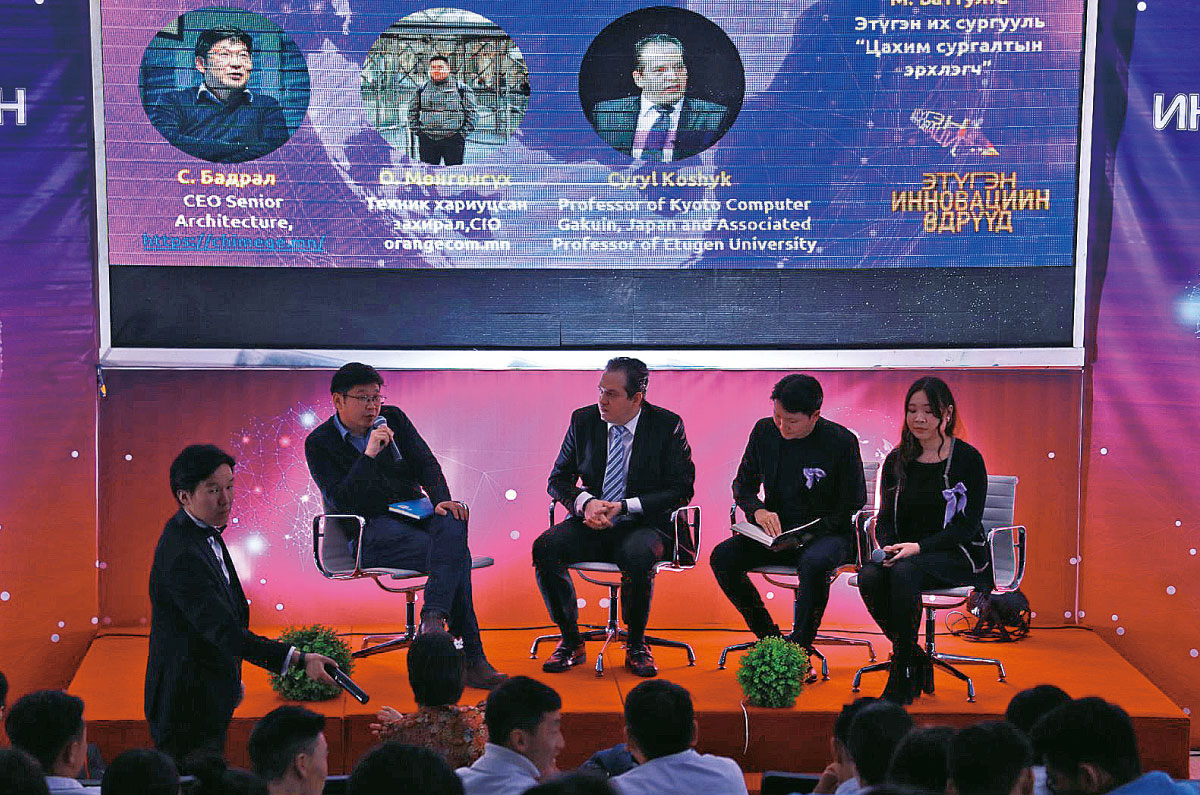 Etugen conference “2020 AI in MEDICAL”での様子
Etugen conference “2020 AI in MEDICAL”での様子
- Jargal Defacto
(ジャーガル・デファクト) - こんにちは!キリル先生がモンゴルにお越しになったきっかけと,こちらに何回ぐらい訪れたかを教えてください。
- Cyryl Koshyk
(キリル・コシック) - 日本で出会ったモンゴルの学生たちは,とても野心的でオープンマインドでした。彼らからモンゴルの話を聞き,訪問してみるべきだと言われたことから,モンゴルに興味を持つようになりました。最近では,教育分野での人工知能(AI)の普及に深く関わっているため,大学を訪れて学生たちに会うことが主な目的でした。
- JD
- 京都コンピュータ学院(KCG)ではどのような仕事をされているのでしょうか?
- CK
- KCGは日本で最初のコンピュータ教育機関で,彼らと一緒に仕事をできることを非常に幸運だと感じています。AIは非常に幅広い分野ですが,私のチームは現在,CGI(コンピュータ・ジェネレイテッド・イマジェリー)の要素を制御することで,エンターテインメントの分野でAIを利用しようとしています。これはジェームズ・キャメロン監督の映画「アバター」で俳優がCGIキャラクターをコントロールしたのと似ていますが,大きな違いは,カメラが人間の動きをAIで処理し,CGIキャラクターをコントロールしていることです。
- JD
- AIの背景と,将来的に何が実現されるかについて教えてください。
- CK
- AIは改善と発展を繰り返しながら長く存在していますが,1950年代に科学者がパーセプトロンを使い例題をコンピュータに教えたのがその始まりです。AIはコーディングに基づいて動作しますが,人間の脳をシミュレートしています。私が初めてAIについて知ったのは15年前です。当時は,「ターミネーター」や「マトリックス」などの映画を思い浮かべ,コンピュータが人類を乗っ取って支配するのではないかと考えていました。ですが,50年もすると,機械が良心を発達させるのではないでしょうか。最近は医療分野でAIが大きく進歩していますが,私は医大のエトゥゲン大学と共同で,スマートフォンを使うだけで皮膚がんを発見できるような技術を開発していることをお伝えしておきたいと思います。例えば看護師がスマートフォンを使って患者の皮膚を調べて,がんかどうかを判断することができます。
- JD
- 進捗状況はいかがですか?
- CK
- プロトタイプはすでに開発されていて,今はテストをしてサンプルを集めています。最近ロシアのイルクーツクでプレゼンテーションをしたのですが,ロシア政府がこの技術を病院に導入することに興味を示しました。しかし,私はモンゴルにこの技術を寄贈したいと思っています。
- JD
- この技術は,人々のために非常に多くの資源を節約することになります。開発したのはいつですか?
- CK
- プロトタイプのテストをさらに進めていきたいと思っていますし,例えばX線で肺がんを検出する技術等をさらに発展させていきたいと思っていますが,最初は皮膚がんの検出に使うことになるでしょう。この技術の面白いところは,どこの機関や個人からも資金提供を受けていないので,教育の場で活用できるという点です。この技術の最大の特徴は,医学生がITの予備知識なしでも利用できることです。実際にはブラウザ上で動作しますので,普通の携帯電話からもアクセスできます。私にとっては,お金ではなく大義の問題です
- JD
- これはキリル先生にとって初めての発明ではなく,他にいくつもの特許をお持ちだそうですね。あなたにとって最も心を動かすものは何ですか?
- CK
- 私は,幼少期からのIT知識を必要としない方法でAIを学生に紹介したいという思いに駆られています。
- JD
- あなたはこれまでにハリウッドで写真やビデオの画質改善技術やAR(拡張現実)関連技術を開発しています。若い世代の重要性に気付いたきっかけは何ですか?
- CK
- ハリウッドでの仕事や映画の仕事を通して,データベースや政府のプロジェクトに多く関わってきました。私一人で受け持てることには限りがありますから,私が持っている知識を若い世代に伝えるべき時が来たと思っています。
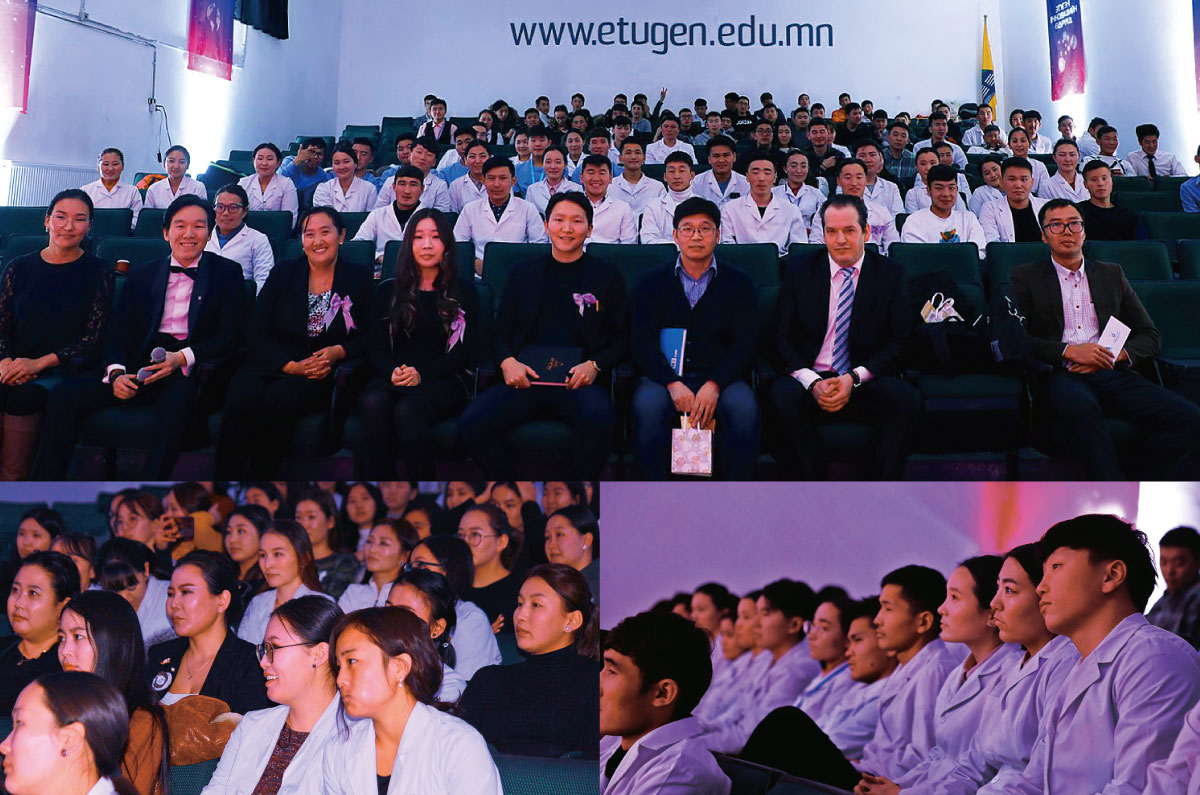
- JD
- You mentioned the Global Expansion Japan-Mongolia organization. Can you elaborate on this organization?
- CK
- I believe that Japan and Mongolia are both great countries in that Mongolia has tremendously ambitious students and Japan has state of the art technology. I am very interested in establishing an exchange program where Mongolian students visit Japan and Japanese students visit Mongolia. I have visited a few Universities and we are in talks of initiating this very promising program.
- JD
- Do you have an idea as to how many students take part in these exchanges and for how long?
- CK
- I think it will initially involve short-term exchanges of select Mongolian and Japanese students. The program can start as early as 2020 and there are many avenues and areas in which to implement the program. For example, many Mongolian students are interested in Japanese manga animations.
- JD
- Global Expansion Japan-Mongoliaという組織があるとのことですが,この組織について詳しく教えてください。
- CK
- モンゴルには非常に意欲的な学生がいて,また日本には最先端のアートテクノロジーがあるという点で,どちらも素晴らしい国だと思います。モンゴルの学生が日本を訪問し,日本の学生がモンゴルを訪問するという交流プログラムを立ち上げたいと思っています。いくつかの大学を訪問したことがありますが,この非常に有望なプログラムを立ち上げようと話し合っています。
- JD
- どのくらいの学生がどのくらいの期間,交流に参加するのでしょうか?
- CK
- 最初は,選ばれたモンゴル人学生と日本人学生の短期的な交流を行うことになると思います。このプログラムは2020年から開始され,プログラムを実施するための多くの手段や分野があります。例えば,モンゴルの学生の多くは日本のマンガ・アニメに興味を持っています。
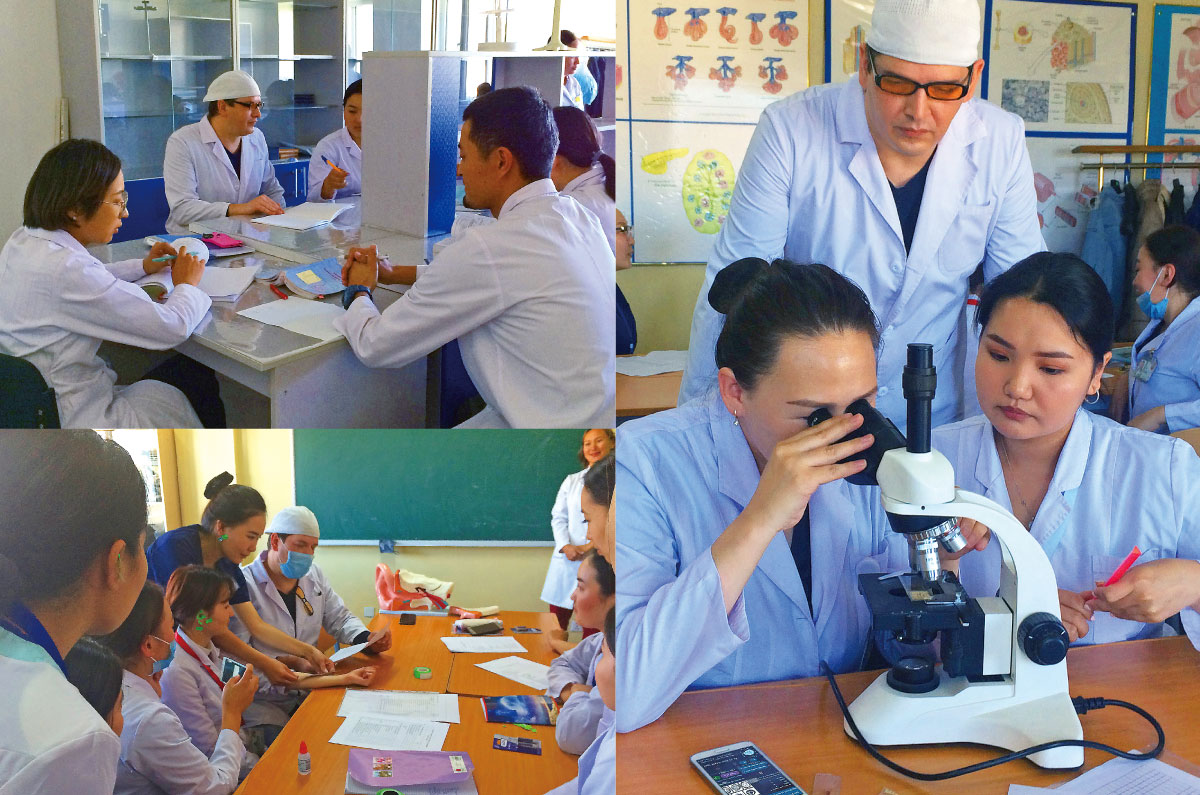
- JD
- There is a belief that if utilized properly, AI can open many opportunities for a landlocked country like Mongolia. What is your opinion on this?
- CK
- In the right hands, I believe that AI can contribute to the solution of pressing issues such as pollution and population of sheep in Mongolia. I would however like to note that AI should be utilized solely to develop the country and resolve issues rather than as a means for generating profit. I think there is a new development every 10 years such as the internet and AI so I believe that the next step will appear in a short time. Therefore, it is imperative that we should not view new technologies with skepticism or fear.
- JD
- What will be the first area of improvement as a result of AI that Mongolians will see?
- CK
- I have been in Mongolia for a short time and spent most of my time developing the skin cancer prototype, but I was thinking of utilizing remote controlled balloons to analyze potential areas for pasture. It would allow us to map the vast expanses of Mongolia and potentially discover areas suitable for introducing new plants not found in Mongolia.
- JD
- This requires a shift in our education policy. At what age should we begin introducing AI to students?
- CK
- The UK and China start teaching AI from kindergarten, but we should begin incorporating AI into Universities in Mongolia as a start and in a decade, we will be able to begin introducing AI at virtually any age.
- JD
- There have been significant developments in 5G which provides significantly more speed than 4G. Is there a necessity for 5G and should we be seeking to incorporate it at the earliest opportunity?
- CK
- I am able to effectively communicate over the internet with 2G, but teenagers may wish to stream videos or watch YouTube. There is no denying the importance of 5G for the financial sector, but I don’t believe it is a necessity for the average student. I haven’t researched the conditions for Mongolia to be able to incorporate 5G but if it finds investors from Japan or Australia maybe you can expedite the process. However, as I said, I believe currently, 5G would only be needed for instant financial transactions of large data uploads and downloads.
- JD
- How can we begin incorporating AI into Mongolian universities?
- CK
- We are beginning with the medical university and I believe that the initial introductions to AI will take place in science subjects. One interesting aspect of AI is network revolution and I believe it is more interesting than AI itself. This involves computers independently learning to solve problems rather than requiring data inputs to learn.
- JD
- So we input data into the computer and eventually it will be able to make predictions on things it was previously not exposed to?
- CK
- It will try to guess. Network intelligence seeks to create new intelligence, so it is even more powerful. Under AI, if you give a computer a sample, it will try to categorize it and we are currently unable to explain how it does this.
- JD
- Eventually, when there is a network of computers that know certain things and can communicate with each other, they may be able to develop more complex solutions than the human brain?
- CK
- This is absolutely correct. Google and Amazon connect thousands of computers to create a super network. The fact that AI is now able to produce abstract paintings points at the significant power that it possesses. It is my hope that certain companies will look into utilizing AI to for example develop a cure for HIV or cancer for example.
- JD
- How will AI impact our health and lifespan?
- CK
- Some developments have taken place in printing organic matter through 3D printers and this may expand people’s lifespans. Combining 3D printing with AI would allow us to recreate damaged organs and replace them.
- JD
- Recently, a 3D printer generated functioning heart was tested. Can you elaborate on what this development can bring about?
- CK
- They are currently growing 3D organs in mice as their physiology resembles that of a human and I believe AI and 3D printing combined can achieve many things such as travel to Mars and change the quality of our lives.
- JD
- Liver and kidney diseases are prevalent in Mongolia and a lot of money is spent by Mongolians to seek transplants. How can 3D printing generate the required parts of these organs?
- CK
- It utilizes organic matter and the idea crossed my mind that the organs can be replicated from aging sheep. It will use the same technology as that used to generate parts of the skull from metal or powder following accidents. Even artificial limbs have been created for people who are not able to walk. Recently, I learned of efforts to repair the damaged connections in the spine and neck that creates paralysis through AI. These efforts are taking place through the use of fiber optic lights prevalent in AI.
- JD
- Please tell us about your current research.
- CK
- I am currently working on skin cancer recognition technology, but I may look into gathering samples of sheep and disease to perhaps determine the best areas for sheep in Mongolia on my next visit.
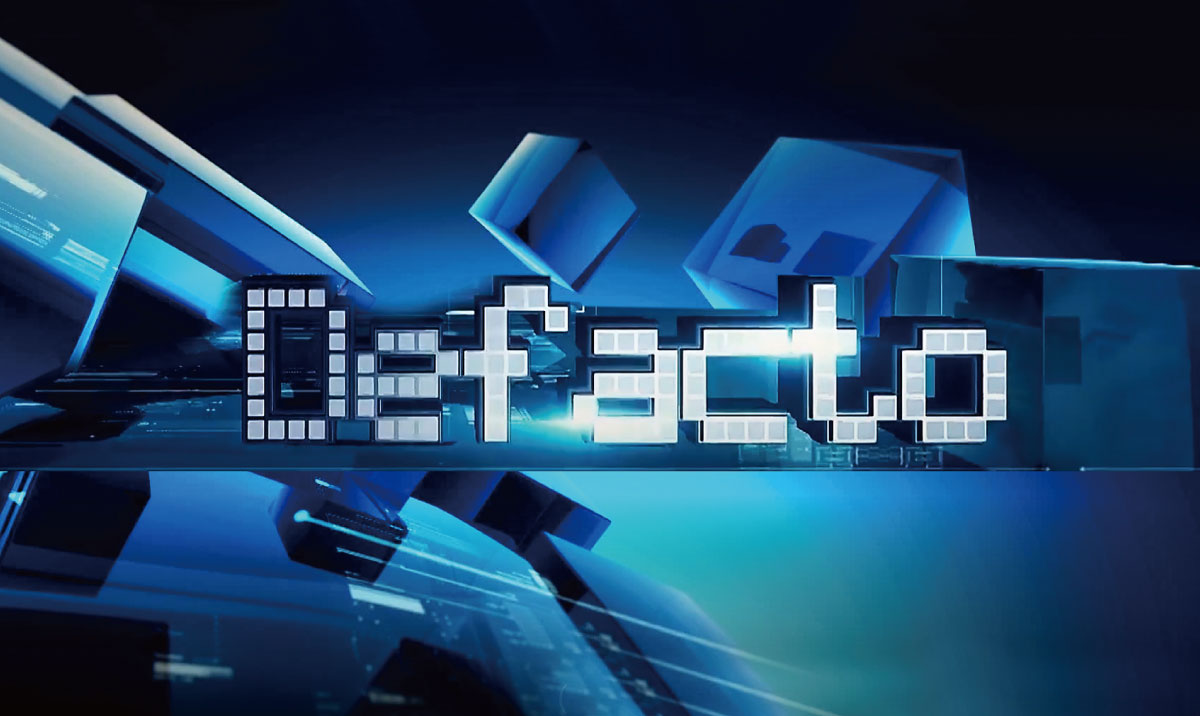

- JD
- モンゴルのような内陸国でも,AIをうまく活用すれば,多くのチャンスが開けてくると考えられています。その点についてはどのようにお考えですか?
- CK
- AIはモンゴルの公害や羊の数など,差し迫った問題の解決に貢献できると信じています。しかし,AIは利益を得るための手段としてではなく,国を発展させ,問題を解決するためだけに活用すべきだと思います。インターネットやAIなどは10年に1度のペースで新しい発展があると思いますので,次のステップは短期間で現れるでしょう。ですから,新しい技術を懐疑的に見たり,恐れたりしてはいけないと思います。
- JD
- AIが浸透した結果,モンゴル人が最初に目にするであろう改善点は何でしょうか?
- CK
- 私はモンゴルには滞在した期間が短く,皮膚がん検出のためのプロトタイプ開発にほとんどの時間を費やしましたが,遠隔操作された気球を利用して,牧草地の潜在的なエリアを分析することも考えていました。モンゴルの広大な土地を地図化して,モンゴルにはない新しい植物を植えるのに適した地域を発見できる可能性があります。
- JD
- そのためには,教育方針の転換が必要です。何歳からAIを導入すべきでしょうか?
- CK
- イギリスや中国は幼稚園からAIを教えていますが,モンゴルでは手始めに大学でAIを取り入れることで,10年後には事実上何歳からでも導入できるようになるでしょう。
- JD
- 4Gよりも格段に高速な5Gの開発が進んでいますよね。5Gの必要性はあるのでしょうか,また早急に導入を模索すべきでしょうか。
- CK
- 私は2Gで効果的にインターネット通信できていますが,10代の若者は動画をストリーミングしたり,YouTubeを見たいと思うかもしれませんね。金融業界にとって5Gの重要性は否定できませんが,一般的な学生にとっては必需品ではないと思います。モンゴルが5Gを取り入れるための条件は調べていませんが,日本やオーストラリアの投資家が見つかれば,そのプロセスを速めることができるかもしれません。しかし,先ほども言いましたが,現在のところ5Gが必要とされるのは,大容量のデータのアップロードやダウンロードを伴う即時の金融取引に限られると思います。
- JD
- モンゴルの大学にAIを導入するにはどうしたらよいでしょうか。
- CK
- 医学系の大学から始まっており,最初のAI導入は理系の科目で行われると思います。AIの面白さの一つにネットワーク革命がありますが,これはAIそのものよりも面白いと思います。これは,学習のために入力されたデータだけに基づくのではなく,コンピュータが自動的に学習して問題を解決するというものです。
- JD
- コンピュータにデータを入力して,最終的には今まで分からなかったことを予測できるようになるということですね。
- CK
- コンピュータは推測しようとするでしょう。ネットワーク知能は新しい知能を生み出そうとするので,さらに強力になります。AIの下では,たとえ分類の仕方が不明であっても,コンピュータにサンプルを与えると,それを分類しようとします。
- JD
- 最終的には,特定のことを知っていて,お互いに通信できるコンピュータのネットワークができたら,人間の脳よりも複雑な解決策を開発できるようになるかもしれないということですね?
- CK
- おっしゃる通りです。グーグルやアマゾンは何千台ものコンピュータを接続してスーパーネットワークを作っています。AIが抽象画を描けるようになったということは,AIが持つ大きな力を指し示しています。AIを活用して,例えばHIVやがんの治療法を開発することに目を向ける企業が出てくるようになることを期待しています。
- JD
- AIはどのようにして,私たちの健康や寿命に影響を与えるでしょうか?
- CK
- 3Dプリンターを使って有機物を印刷する技術の開発が進んでいますが,これは人々の寿命を延ばす可能性があります。3DプリンターとAIを組み合わせることで,傷ついた臓器を再現したり,移植したりすることができるようになるでしょう。
- JD
- 最近,3Dプリンターで生成された機能する心臓がテストされました。この開発がもたらすものについて詳しく教えてください。
- CK
- 現在,マウスの体内で3Dの臓器を育成することが行われていますが,これはマウスの生理機能が人間のものに似ているためです。私は,AIと3Dプリントを組み合わせることで,火星旅行や生活の質を変えるなど,多くのことが実現できると信じています。
- JD
- モンゴルでは肝臓や腎臓の病気がまん延しており,移植を求めるために多くのお金が使われています。3Dプリントはどのようにしてこれらの臓器の必要な部品を作ることができるのでしょうか?
- CK
- 有機物を利用しているので,老いた羊から臓器を複製することができるのではないかと私は考えました。事故の後に金属や粉体から頭蓋骨のパーツを作るのと同じ技術を使うことになりますね。現在は,歩くことができない人のための人工四肢まで作られています。最近では,麻痺の原因となる脊椎や首の結合部の損傷をAIで修復しようとする取り組みを知りました。これらの取り組みは,AI分野で普及している光ファイバーを使って行われています。
- JD
- キリル先生の現在の研究内容について教えてください。
- CK
- 現在は皮膚がんの認識技術に取り組んでいますが,次にモンゴルを訪問する際には,羊のサンプルや病気のサンプルを集めて,羊に最適な地域を判断することを検討するかもしれません。
 Mr.Jagar Defacto(Jargalsaikhan Dambadarjaa)Mongolian political and economic observer, columnist
Mr.Jagar Defacto(Jargalsaikhan Dambadarjaa)Mongolian political and economic observer, columnistジャーガル・デファクト氏(Jargalsaikhan Dambadarjaa)モンゴルの政治・経済評論家,コラムニスト



